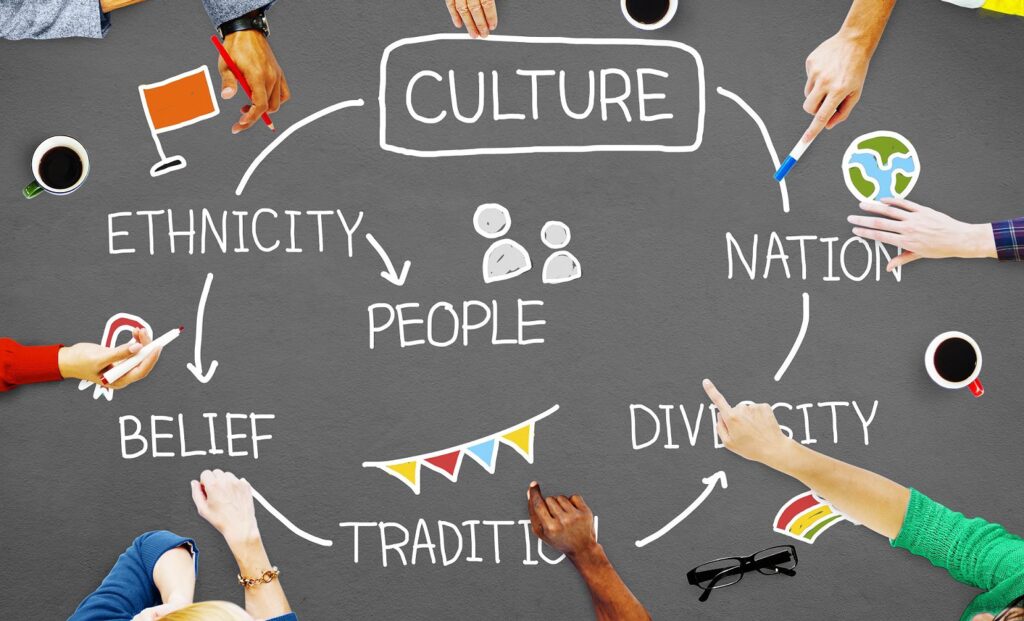
Common Sense Isn’t So Common
The tapestry of culture is woven with threads of family, tradition, and ritual, yet many today miss out on these fibers. Often, it’s because their own experience of “togetherness” is thin or limited, defined by gifts more than shared moments or personal history. Celebrations can be commercialized or reduced to a sale-driven exercise in gift-giving and receiving. This isn’t inherently negative, but it tells only part of the story of what tradition can be.
For those of us with cultural customs that are woven tightly into our sense of self, the holidays offer more than simply another day on the calendar. In my family, Christmas wasn’t a traditional holiday for us; it was something we took part in because of where we lived. We blended in, adapted, but the warmth of the season was only partially ours. My parents worked every holiday and so when we celebrated it felt slightly apart. Birthdays became less prominent once school began, almost as if they were lost to the larger culture.
But Chinese New Year was different—it was and remains a ritual of remembrance and respect. Like clockwork, this holiday called us to our roots, tying us to family through ritual, food, and reverence for ancestors. It is an annual celebration in honor of those who came before, a gesture of respect for the blessings they’ve passed down.
What sets certain cultural practices apart is the purpose behind them. Some cultures emphasize family gatherings and meaningful connection over consumption. The focus isn’t on items but on memories—investing blessings in each other, in community, in something enduring. It’s an idealistic view, yes, but one I hold close. The value lies in creating experiences that live on, memories saved in our hearts rather than receipts in our pockets.
Ethnicity, diversity, and beliefs shape how we see the world and how we connect with each other. They influence not only our values but also our sense of belonging, our customs, and our shared experiences. Growing up in an ethnically distinct family, for example, means inheriting more than just physical traits or a genetic background; it’s about inheriting a worldview, a specific way of being that resonates through holidays, language, beliefs, and the countless small practices that make up everyday life.
Diversity gives us a mosaic of perspectives, grounding us in our own identities while connecting us to a broader humanity. It’s like each person or group brings a unique color to the painting, creating a richer, fuller image of society as a whole. And this diversity is only meaningful if we honor and respect each other’s beliefs. Recognizing the various customs that shape people’s lives—from Ramadan to Diwali, from Hanukkah to Christmas, from Día de Los Muertos to Lunar New Year—allows us to see the beauty in our differences.
Beliefs anchor us, providing a framework for what we value and how we navigate life. But beliefs are also dynamic; they can evolve and expand when we encounter the customs and perspectives of others. In my family, Chinese New Year was our yearly anchor—a time to honor ancestors, recognize the blessings we carry, and pass them forward. For others, it might be Thanksgiving or Eid, or perhaps it’s not a specific holiday but rather a set of practices or values shared across generations.
When we approach each other with curiosity and respect, we create spaces for true connection. We move beyond stereotypes or shallow understandings to recognize the depth that each person’s background brings. Diversity isn’t just a “buzzword”—it’s a way to build a society that feels more inclusive, compassionate, and complete. At its best, it allows us to celebrate our own traditions while appreciating the many paths others take to find meaning, belonging, and community.
It’s easy to overlook the importance of cultural practices when there’s little experience of true immersion in them. To be raised with a sense of “closeness” means to know that every moment spent in the company of family is a gift in itself. And while others might spend blessings on things, there’s a certain beauty in saving them for each other, for the next gathering, the next shared meal.